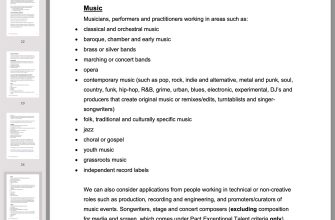In the realm of employment law, the terms ‘custom and practice’ hold significant weight. They refer to the unwritten rules or traditions that have become part of the working relationship between an employer and their employees. These customs and practices can sometimes carry as much weight as the written terms in an employment contract. Understanding custom and practice is crucial for both employers and employees, as it can influence the interpretation of employment contracts and the resolution of employment disputes. This article will delve into the meaning of custom and practice, its implications in employment law, and its relevance in case law. We will also explore the role of the Chartered Institute of Personnel and Development (CIPD) and the Advisory, Conciliation and Arbitration Service (ACAS) in this context.
Understanding Custom and Practice
Custom and practice refers to the unwritten rules or traditions that have become part of the working relationship between an employer and their employees. These can include anything from the provision of certain benefits to the way certain tasks are performed. The key aspect of custom and practice is that it is established over time and is consistently applied.
Custom and Practice Meaning
The term ‘custom and practice’ is used to describe a situation where an employer and employees follow a certain course of action over a period of time, even though it is not written into the employment contract. This can be anything from the provision of a particular benefit, such as a Christmas bonus, to the way certain tasks are performed. The key aspect of custom and practice is that it is established over time and is consistently applied.
Custom and Practice in Employment Law
In employment law, custom and practice can have significant implications. If a certain custom or practice has been consistently followed over a long period of time, it may be considered to be an implied term of the employment contract. This means that even though it is not explicitly stated in the contract, it is still legally binding. This is known as ‘impliedly’ incorporated into the contract.
- Impliedly: This term refers to something that is not explicitly stated but is nonetheless understood or inferred. In the context of employment law, a term can be impliedly incorporated into an employment contract through custom and practice.
Role of CIPD and ACAS
The Chartered Institute of Personnel and Development (CIPD) and the Advisory, Conciliation and Arbitration Service (ACAS) both play important roles in the realm of employment law and custom and practice.
CIPD TUPE
The CIPD, or Chartered Institute of Personnel and Development, provides guidance and resources for HR professionals. One area they cover is the Transfer of Undertakings (Protection of Employment) regulations, or TUPE. These regulations protect employees’ rights when the business they work for changes hands. The CIPD provides guidance on how custom and practice can impact TUPE transfers.
Custom and Practice ACAS
ACAS, or the Advisory, Conciliation and Arbitration Service, provides free and impartial advice to employers, employees and their representatives on employment rights, best practice and policies, and resolving workplace conflict. They also provide guidance on custom and practice, helping to clarify when a custom or practice might become an implied term of an employment contract.
Custom and Practice Case Law
Case law plays a crucial role in shaping the understanding and application of custom and practice in employment law. Through various rulings, courts have provided clarity on when and how a custom or practice can be considered an implied term of an employment contract.
Custom and Practice Examples
There are numerous examples of custom and practice in case law. For instance, in one case, an employer had consistently provided a Christmas bonus for many years. Despite the fact that this bonus was not mentioned in the employment contracts, the court found that it had become an implied term through custom and practice. In another case, an employer had a long-standing practice of allowing flexible working hours. When the employer tried to change this, the court found that the flexible working hours had become an implied term of the employment contracts through custom and practice.
Conclusion
Understanding custom and practice is crucial for both employers and employees. It can influence the interpretation of employment contracts and the resolution of employment disputes. Both the CIPD and ACAS provide valuable guidance on this topic. Furthermore, case law provides numerous examples of how custom and practice can become an implied term of an employment contract. Therefore, it is important for both employers and employees to be aware of any customs or practices in their workplace and to consider how these might impact their legal rights and obligations.







